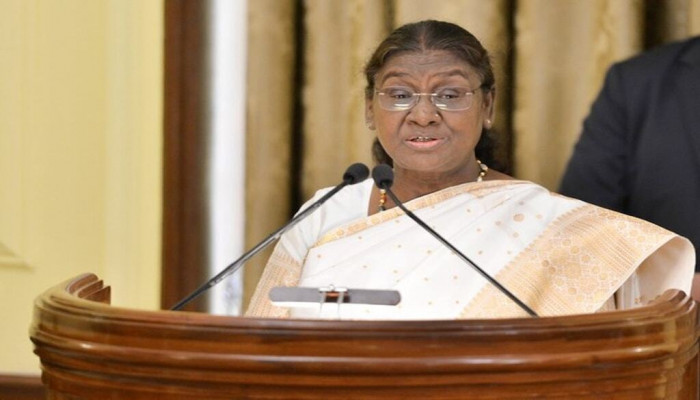President Droupadi Murmu constitutes 23rd law commission of India for 2024-2027 term
- In Reports
- 11:58 AM, Sep 03, 2024
- Myind Staff
President Droupadi Murmu has sanctioned the formation of the 23rd Law Commission of India, which will serve from September 1, 2024, to August 31, 2027. The commission is tasked with reviewing and recommending reforms to improve the Indian legal system. According to a notification issued on Monday, the commission will consist of a full-time Chairperson, four full-time members, and additional ex-officio and part-time members.
The commission's composition includes a chairperson, four full-time members (including a Member-Secretary), the Secretary of the Department of Legal Affairs, and the Secretary of the Legislative Department as ex-officio members. Up to five part-time members will also be included. This development comes as the term of the 22nd Law Commission of India ends on Saturday.
The Law Commission has been functioning without a chairperson for several months, delaying key reports, including those on the Uniform Civil Code and simultaneous elections. Although the report on simultaneous elections is reportedly complete, it has not been submitted to the law ministry due to the absence of a chairperson. The last Chairperson, Justice Ritu Raj Awasthi, resigned in March 2024 after a 17-month tenure, leaving the position vacant.
The Gazette Notification outlined the terms of reference for the 23rd Law Commission:
1. Judicial Administration: Efforts will be made to eliminate delays, reduce case backlogs, and cut costs to ensure efficient and fair judicial processes. The commission aims to simplify court procedures and harmonise High Court rules, focusing on case and case flow management.
2. Directive Principles and Constitutional Objectives: The commission will review laws concerning the Directive Principles of State Policy, proposing reforms and new legislation to fulfill these principles and achieve constitutional objectives.
3. Gender Equality: A review of existing laws to promote gender equality and suggest necessary amendments will be undertaken.
4. Revision of Central Acts: Key Central Acts will be revised to address anomalies, ambiguities, and inequities.
5. Government References: The commission will provide insights on law and judicial administration topics referred by the Government.
6. International Research Assistance: The commission will offer research support and guidance to foreign countries as referred by the Government.
7. Globalisation Impact: The commission will analyse the effects of globalisation on food security and unemployment and recommend measures to protect vulnerable communities.
Additional provisions include consulting relevant Ministries and stakeholders before finalising recommendations, submitting reports in both Hindi and English, and making these reports available to Parliament and on the Law Commission's website. The commission will also collaborate with law universities and policy research institutions, offer internships to law students, and engage consultants or experts for specific projects as needed.
Image source: ANI







Comments